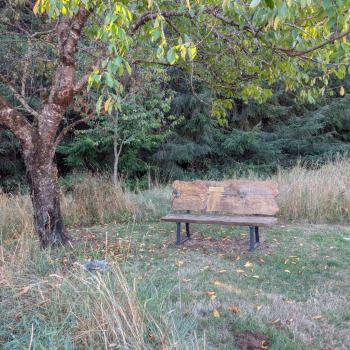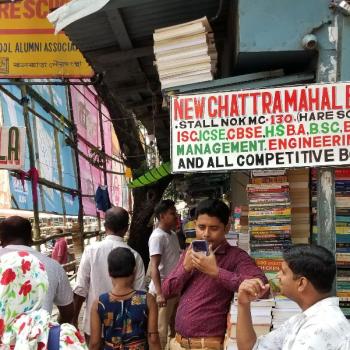
On New Year’s Day 2020 I confidently posted a picture of Audrey Ann Hughey’s 2020 Author’s Planner. In this helpful organizer I had mapped out the writing, editing and marketing for my next book under contract, Cord Magic. I felt so accomplished! I thought 2020 was going to be my best writer’s year yet.
Expiration Date on My Husband
The happy cheer I felt when I posted the pic evaporated five days later when I took my husband Alex to the neurologist. Alex had been dragging one foot as we lapped the walking course at the gym and we wondered what was going on. The neurologist pushed on his arms and legs, looked worried, and told us he was clearing his schedule for the afternoon and to come back in two hours. We went to IHOP and tried not to fret.
In the afternoon the neurologist ran an EMG (electromyography) test and immediately gave us his diagnosis. Alex had ALS, Amyotrophic Lateral Sclerosis, Lou Gehrig’s disease. “You remember the ice bucket challenge?” the neurologist said. “That was to get funding for research.” He explained that ALS is a progressive neurogenerative disorder which gradually affects muscular capacity. Put another way, it causes a slow paralysis which ultimately takes away the ability to walk, talk, and breathe. He gave us a 2-5 year prognosis with no treatment and no cure.
When we got home we sat our partner Ted down at the kitchen table to break the news. Then the three of us went to our separate rooms to process the information. I cried as if Alex had died. I thought of all the books I planned to write that I wanted him to read. In the middle of this sob fest he walked in and said, “Okay, I’ve been doing some research.” I looked at him with a bit of shock and realized he wasn’t dead yet, he was still breathing, talking and walking. Instead of sitting down and feeling sorry for himself he’d leaned into it to figure out what resources are available to him. Among other things he’d found that an early diagnosis is critical in being able to manage the condition. I mailed our neurologist a thank-you card.
At choir practice that week I sat next to my doctor friend. We have one of those singing relationships that develop when your voices match, I keep her on pitch on the high notes and she hits the notes I forget. I told her about Alex and she said there is a lot of uncertainty in neurological diseases, it’s hard to predict how they will progress. She sympathized with me about how hard that uncertainty makes planning your life. I was grateful to have her advice and support.
The Last Pagan Conference
In February Ted and I went to PantheaCon. I thought it was probably the last time both of us could leave Alex alone for a weekend. When I saw Elysia Gallo in the lobby she gave me a huge hug. I didn’t realize at the time how much I would cherish the memory of that hug. I told her I would get Cord Magic in on deadline and she said the most important thing was taking care of my family.
We all knew at the time it was the last PantheaCon. An elegiac melancholy hung over every moment, the last workshop I would give, the last Llewellyn author party, the last book launch. We launched the anthology Lewellyn’s Complete Book of Ceremonial Magick in which I have an essay, “The Future of Ceremonial Magick”. The contributors talked about our hopes that the book would find its audience. As we said goodbye to each other and goodbye to the convention we didn’t realize it was almost the last Pagan conference of the year. We didn’t realize that there would be such uncertainty about when we could gather indoors again like that at all.
Shutting Everything Down
The first week in March we started choir practice by deciding whether we would meet the next week. There was a discussion among the choirs in Seattle about how important it is to have the comfort of community in difficult times. Our director and administrator asked the doctors among us what they thought. Was the novel coronavirus just another flu? The doctors, including my choir friend, said we should take this very seriously. We decided to cancel practice the next week. There was another choir in the area that went ahead with their next rehearsal. They’re the ones who show up in the news as a super spreader event when 45 of the 60 choristers who sang that day came down with COVID-19 and two of them died. We didn’t blame them for meeting – it could have been us – and the news hit us all pretty hard, the arts community here is small and close. That narrow call brought home the seriousness of the situation.
The pandemic story arc took over the year. No more trips to IHOP, no more gym, no more in-person choir rehearsals. Going to the grocery store felt life threatening when every unmasked person could be Schrödinger’s coronavirus spreader. The only safe place to go was outside. I remember the day in March we went to Scenic Beach State Park for the last time before the state shelter-in-place order shut the gates and we couldn’t go anywhere at all.
In the weeks of the quarantine we made it a point to sit outside every day. Like many people I spent a lot of time in my garden. We went virtual too and held our coven Beltane party on Zoom. I remember the day in May when the state parks re-opened and we went back to Scenic Beach again. Bookend photos show us sitting at the same picnic table before and after the shutdown. There were other people out there walking around in little family bubbles. We all looked shell shocked, stumbling around in the sunshine as we emerged from our bunkers.
Losing My Ego
Up until Alex’s diagnosis I confidently believed I would be a member of Ordo Templi Orientis for the rest of my life. I had just committed to a second three-year term on the Kitsap County Council for Human Rights as an appointed member. I was working on a policy proposal for Covenant of the Goddess (of which I am a past national president). This is normal for me, I’ve been a group leader since I was elected president of my high school science fiction club when I was 16. I started 2020 proud of my leadership abilities, aware of some of my limitations (who is aware of all our limitations?), working to better myself with the help of a particularly thoughtful mentor (thanks Airen.)
The February day I started getting phone calls because a discussion had blown up on a mailing list was the day Alex fell in the parking lot and I couldn’t stand him up on my own. A kind passer-by stopped and helped me get him back on his feet. I realized at that moment that I no longer had the mental or emotional bandwidth to handle institutional drama. I spent a few months disentangling my responsibilities to the political and religious organizations in my life. In short, I left.
As important as they had been to me, I was not indispensable to them. I had cherished an image of myself as structurally important. It turned out that I could be replaced and the groups could carry on without actually missing me much. Most of us know this intellectually, and it is a Tantric meditation to ponder our insignificance, but it was a shock to the system nonetheless. The ego-centric error of setting my value too highly led to a very real ego death. I had a lot of identity bound up in leadership in general and in my work in the O.T.O. in particular. At one particularly bad moment this manifested as a physical sensation, what the Tantric texts call stambhana, immobility: I burned all over, it was hard to move, it was hard to breathe. I listened to the Lalita Sahasranama until the chanted names of the Goddess returned my breath.
Although I was proven replaceable, I worried that my friends and colleagues would think I had abandoned them. My favorite non-O.T.O. Thelemite Bill Duvendack very kindly offered the observation that surely people would recognize that caring for your family is the greatest sacrifice. It’s become clear to me over time that it was the right decision. Drama pulls my attention and shoots me up with adrenaline that makes my hands shake. I’m giving medication which requires a steady hand. I need to stay calm for Alex’s sake, and Ted’s, and my own.
The certainty that I know what I am doing, even that I know who I am, has been replaced by uncertainty. I’m not planning a lifetime in advance, or a year, I’m living like we all do, day to day. I don’t know what my work will look like in the future. I do know I need people though. I’ve held onto membership in clubs which keep me connected to community (a garden group, working magical groups, the choir on Zoom). What they have in common is that they are small, local, non-religious and non-political, focused on making things, and offer me close personal support that makes it possible for me to stay engaged.
Maybe I Get to Keep My Husband?
The Mahabharata tells the story of Savitri, a beautiful princess who marries a prince destined to die within the year. At year’s end when the Lord of Death carries his soul away Savitri follows him begging for his life. Yama is moved by her devotion and tells her he will grant any boon except her husband’s life. She asks for gift after gift until she finally asks for many sons. When Yama grants her this gift, she says, “How will I have sons without a husband?” Yama relents and returns the prince’s soul to his body, and Savitri and her husband spend a long and happy life together.
The story is an allegory for the soul’s journey, but it’s also about love. I have become Savitri. I watch Alex to figure out what technology, equipment, and medications I can organize for him that will preserve his life as long as I can. Yama, I love him, grant me a gift.
The information our neurologist gave us was dated. It turns out that the research funded by the ice bucket challenge has resulted in treatments. Alex was immediately prescribed Riluzole which extends life. It’s a pill he takes twice a day. There’s another drug, Radicava, which extends capacity, but you have to be early enough in the progress for the drug to matter. This is where the early diagnosis pays off – Alex qualified.
This drug is more complicated than a pill, it’s given intravenously. I spent three days in December learning from a nurse how to administer the drug at home. The nurse mentioned that her other patient receiving this drug hasn’t had a significant decline in ability in three years. I immediately understood that this is one end of a range of possibilities, the clinical trials showed a 30% reduction in rate of decline over a year. But the possibility exists that Alex could be spared the worse effects of the disease.
When I got home that day I went to my room and cried again, this time not with grief but relief. Yama had relented a little bit. The certainty of the initial prognosis has been replaced by uncertainty. I can hope. There are other medications in development that may even reverse the damage of the disease, and now I can hope that Alex lives long enough to get them. I can hope that he can go on talking, eating, and breathing for the rest of his life. I can hope that he will be able to read the books I am writing as fast as I can.
If We Can Just Make It Through the Winter
Winter’s cold Northwest rains drove us all back indoors. I still bundle up and go outside but for much shorter lengths of time and alone. At Beltane our family video party was a novelty, our Yule party demonstrated we’re all old hands at Zoom. As I bake my way through the tail end of 2020 I play the Holst version of Christina Rossetti’s Christmas carol In the Bleak Midwinter on repeat. It seems like the song of the season, the birth of the child in the harshest moment of the year.
We all love a good success story. The development and rollout of vaccines all around the world is a major accomplishment for science and for humanity. What Radicava means to me personally the vaccine means to the world – relief. Images of front-line workers getting their shot (or jab in the U.K.) vie with headlines announcing skyrocketing infection rates and overflowing hospitals as people crack under the pressure of isolation and decide to take risks. I see my neighbors having house parties, my friends posting selfies with their friends in bars.
In November I was part of the team that helped a friend get through Covid. I sent an Instacart egift certificate, had a massive bottle of powdered Gatorade delivered to the door, posted regular video chats with images of anything cheerful, pets, backyard trees, Christmas lights. Watching their face turn grey as they battled through miserable physical symptoms and the very real fear of death was heart-stopping. Here is what they keep posting: this is not the flu, you don’t want to get it, stay home and safe, mask up, be careful, hang on just a little bit longer.
Welcome Baby 2021
I wrote “The Future of Ceremonial Magick” at a time when I saw many people hopeless about climate change and the future of the planet. I wanted to give us all a way to hope. I said “When the future seems both fixed and grim, uncertainty is a blessing.” I didn’t realize when I wrote it how true it would become in my personal life.
I did get my manuscript in on time. Cord Magic, Tapping the Power of String, Yarn, Twists and Knots is scheduled for release in May. I hope it finds its audience. Today I’m staring at Audrey Ann Hughey’s 2021 Author’s Planner. I need to schedule the final edits and marketing, I want to start on my next set of projects, but I’m eyeing the book with something like PTSD. Planning anything seems like tempting fate.
We mourn the loss of our year, the loss of the certainty that we can go anywhere safely and plan for our future with confidence. We are living through the truth our wisest teachers have always told us: in the changing world there are no guarantees. Solid ground is an illusion. We may be certain that our lives will come to an end, but we cannot be certain when, or how.
That uncertainty opens a window for us to dream of the future. In the uncertainty of the new year I dream a return to the restaurant, the gym, the small pleasures that buoy our lives. I dream of a spring where I can hug my friends, a summer where the coven family can gather in the park for Lammas, a fall where I can sing with the choir in person. I dream of another winter Ted and I can spend with Alex.
May the new year bring happiness and health for us all, and for the baby year about to be born, an easier road.
















